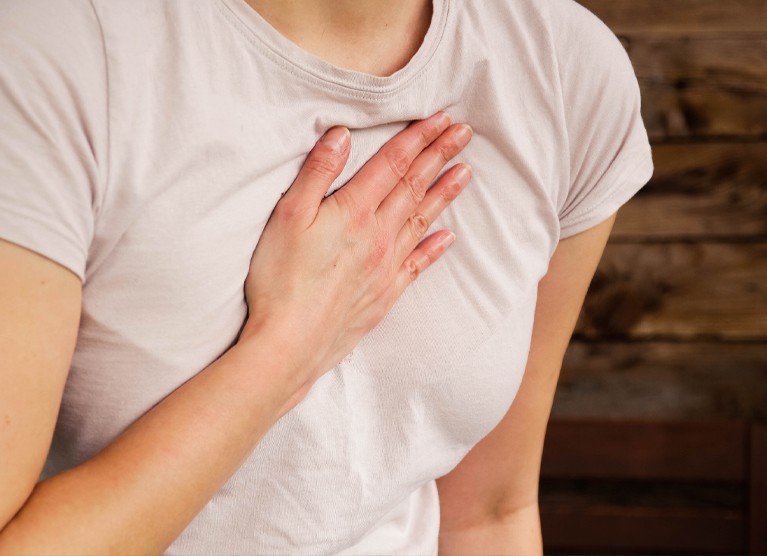Heart Burn or Heart Attack? 5 Symptoms You Shouldn’t Ignore
Chest pain isn’t the only sign of a heart attack. Your body presents many warning signals that could indicate a heart problem—or something less serious. Understanding the difference could save your life.
In this post, we’ll explore five commonly misunderstood symptoms, how they compare to signs of heart disease, and how to know when to seek help.
1. What Does Tingling in the Chest or Arms Mean?
Pinched Nerve vs. Heart Attack Symptoms
Sometimes tingling in your arm, leg, or chest is due to a pinched nerve or neck arthritis. But when is it something more serious?
- Pinched Nerve: Tingling often isolated to one limb, triggered by neck position or movement, may be chronic.
- Heart Attack: Sudden, unexplained tingling in one or both arms (or chest), possibly with chest pain, dizziness, or shortness of breath.
If you’re experiencing tingling along with other heart-related symptoms, don’t ignore it. Better safe than sorry—get checked by a physician.
2. Can Stomach Flu Feel Like a Heart Attack?
How to Tell the Difference
Stomach discomfort isn’t usually linked to your heart—but there are exceptions.
- Stomach Flu: Cramping, vomiting, diarrhea, often linked to a virus or food poisoning.
- Heart Attack: Nausea, a cold sweat, chest or back pain, and shortness of breath without obvious GI triggers.
If GI symptoms are accompanied by chest pain or shortness of breath, seek emergency care. Your body might be signaling a cardiac issue.
3. Panic Attack or Heart Attack?
Panic attacks and heart attacks share similar symptoms—chest pain, nausea, and shortness of breath—but they usually stem from very different causes.
- Panic Attack: Triggered by stress or anxiety, may include trembling, sense of doom, lasts under 5–10 minutes.
- Heart Attack: Can occur without warning, symptoms intensify or persist, may feel like pressure, heaviness, or squeezing in the chest.
If you’re unsure and symptoms persist—especially if you’ve never had a panic attack before—go to the ER immediately.
4. Can Jaw or Tooth Pain Signal a Heart Problem?
Dental Pain vs. Heart Pain
Not all jaw pain is dental. Some of it may come from your heart.
- Dental Issue: Constant, localized pain; aggravated by chewing or cold/hot foods.
- Heart-Related: Intermittent jaw pain that worsens with activity, may radiate from the chest or neck.
Because heart nerves can refer pain to your jaw, don’t ignore discomfort that doesn’t match your usual dental symptoms.
5. Is It Heartburn or a Heart Attack?
How to Tell if It’s Indigestion or a Heart Issue
Burning or pressure in the chest? It could be something you ate—or something far more serious.
| Symptom | Heartburn | Heart Attack |
|---|---|---|
| Trigger | After eating | Often random or during physical activity |
| Relief | Improves with antacids | Does not improve with antacids |
| Location | Upper abdomen or chest | Chest, may radiate to arm, back, or jaw |
| Sensation | Burning or sour taste | Pressure, tightness, or squeezing |
If you’re unsure whether it’s reflux or something more serious, play it safe and consult a doctor.
Frequently Asked Questions
Can GERD cause arm numbness?
No—GERD (gastroesophageal reflux disease) typically affects the digestive tract. Arm numbness is not a symptom of acid reflux and may point to a neurological or cardiac issue instead.
Is tingling in the chest a sign of a heart attack?
It can be. Especially if it’s accompanied by other symptoms like chest discomfort, shortness of breath, or dizziness. Always treat unexplained tingling in the chest seriously.
Can acid reflux cause arm pain?
Reflux pain usually doesn’t radiate into the arms. If you’re experiencing arm pain along with chest discomfort, it’s important to get evaluated for a potential heart condition.

Not Sure What Your Symptoms Mean?
It’s easy to feel anxious when your body sends mixed signals. Whether it’s heartburn, a pinched nerve, or something more serious, trust your instincts and seek professional care.
Worried you're experiencing possible warning signs of hearing loss? Book an appointment with your local hearing care professional.
Additional Resources

Take Online Hearing Test
Take our free at-home hearing loss test as a first step on your journey to better hearing.


